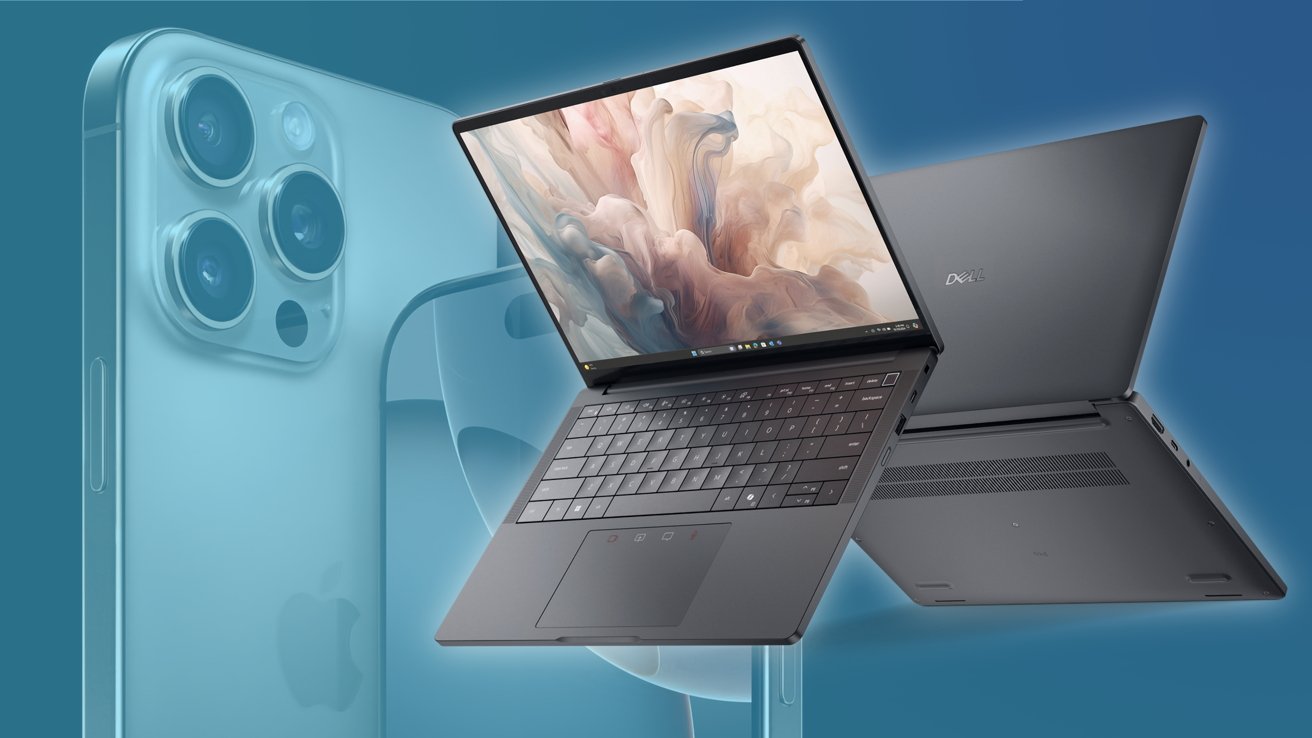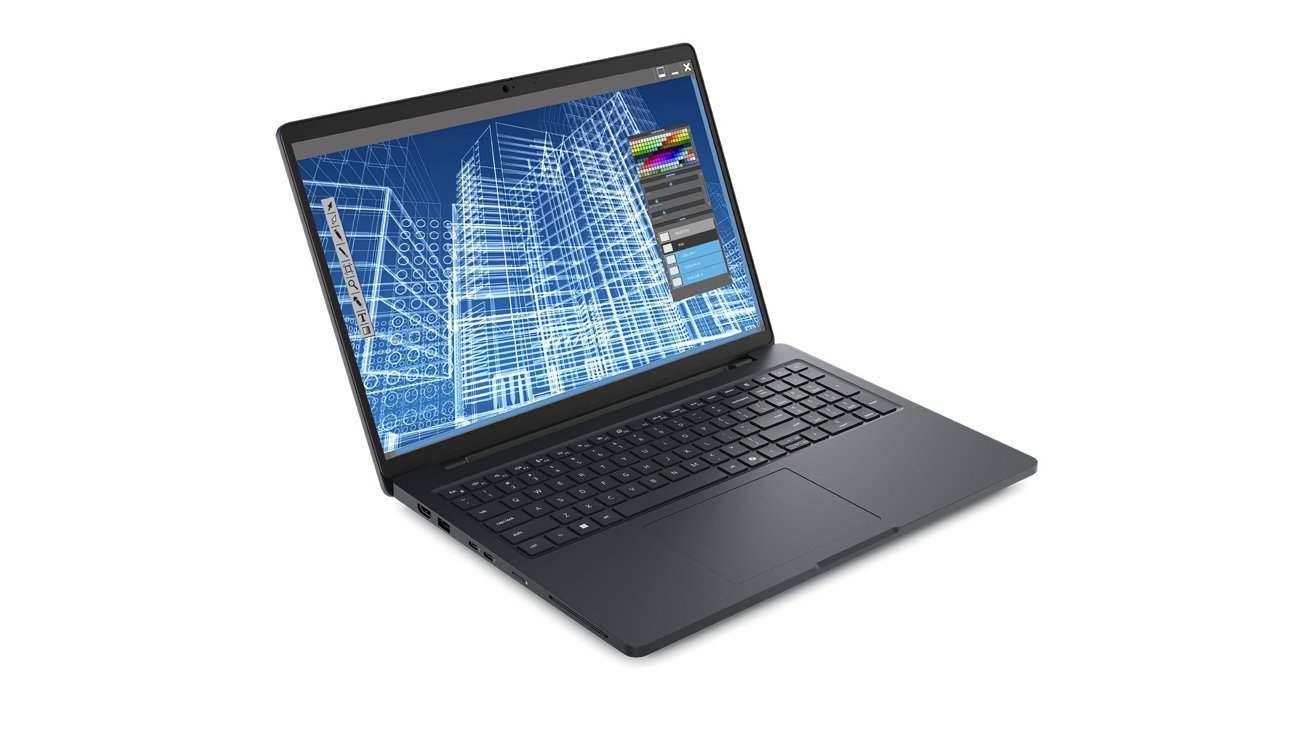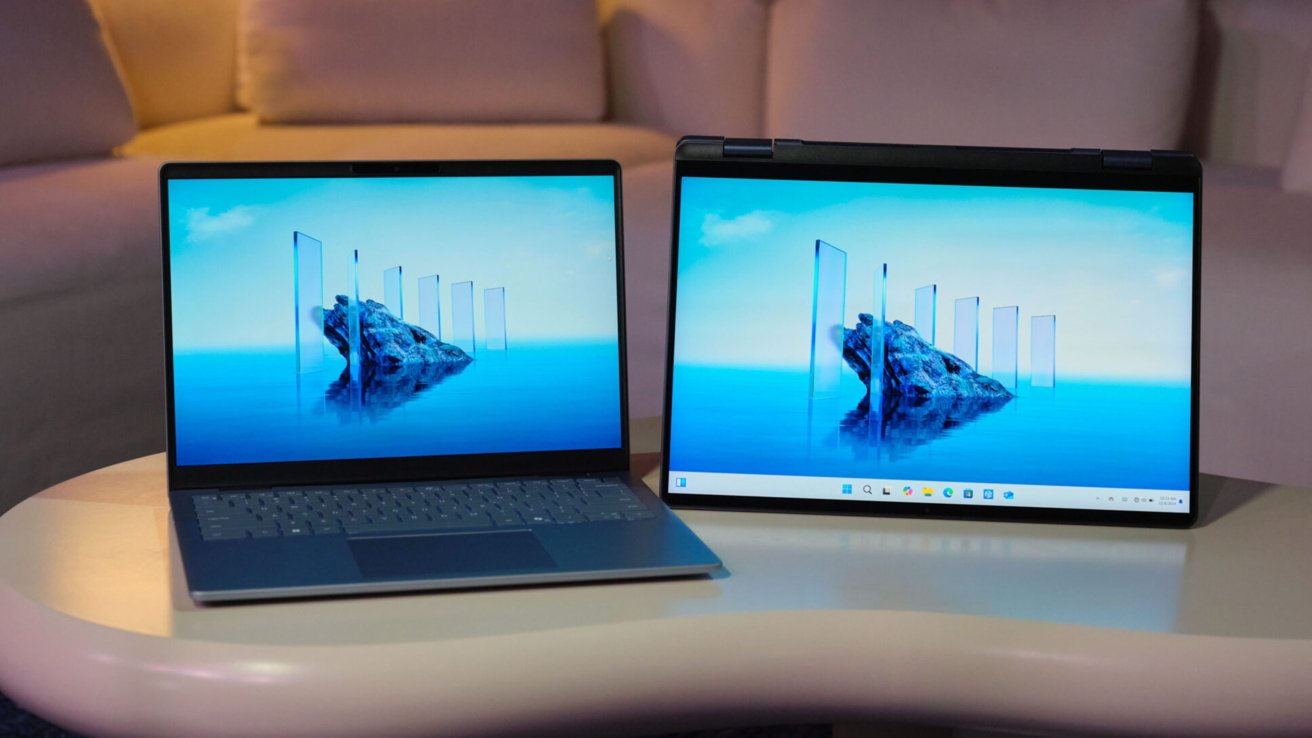Start your photocopiers: Dell rebrand shamelessly rips off Pro iPhone marketing
In a bid to reinvigorate PC sales, Dell should've put a lot of thought into how it rebrands its PCs. Instead, it ripped off the iPhone's Pro and Pro Max naming conventions.

Dell Pro 14 Premium beside an iPhone 16 Pro Max - Image Credit: Dell, Apple
While a company can use brand names for its products successfully for long periods of time, they sometimes feel the itch to try something new. Rebranding efforts from major organizations can take a lot of resources and focus group meetings to create something new, but it seems Dell decided against that route altogether.
Announced on Monday for the annual CES tradeshow, Dell proudly declared that it's grown tired of its existing product names. Titles such as "XPS" and "Inspiron" have been used for years, denoting the performance and target markets for the models, but they won't anymore.
Replacing the tier names will be some oddly familiar terms: Dell, Dell Pro, and Dell Pro Max.
This is identical to how Apple brands the tiers of its iPhones, as well as the MacBook Pro range, and even its Apple Silicon chips. It also seems Dell decided to leave room for expansion, by not using Ultra too.
Painfully obvious
The announcement, occurring three months before April Fool's Day, was made at a pre-CES briefing by Dell COO Jeff Clarke, as well as a blog post.
"Customers really prefer names that are easy to remember and easy to pronounce," Clarke told reporters, reports Bloomberg. He insisted that consumers should need to take time "figuring out our nomenclature, which at times has been a bit confusing."
Attendees at the briefing quickly caught onto what Dell was doing, and pressed on why it went for something reminiscent of a direct competitor's naming scheme.
"I am wondering why you guys didn't choose something original, because you essentially have Apple's branding here," one attendee said. Another pressed further, "Your branding sounds a lot like Apple - aren't you following them?"
The pretty damning instant commentary from the media was defended weakly by Dell executives, insisting that nobody owns words like "Pro" and "Max" at all.
While certainly true, that assertion certainly doesn't stop anyone from seeing the pattern of usage and wondering if Dell simply copied Apple.

Dell Pro Max 16 - Image Credit: Dell
Clarke also insisted that Dell really did put the effort into coming up with the names, with the decision using research from "tens of thousands of customers." Certainly no-one who will have come into contact with an iPhone or Apple products in the past.
Dell PC business VP Kevin Terwilliger also added that Dell's approach is similar to Apple's by "anchoring" products to a simple brand name. Though seemingly with the intention of that anchoring not being to Apple's products.
The belief the company's doing the right thing here also goes up to CEO Michael Dell, who points to the need to capture a new wave of customers.
"There's an install base of 1.5 billion PCs, and it's aging - and those PCs will need to be replaced with the AI innovation," Michael Dell told reporters at the briefing. The new naming scheme will "make it easier for our customers to do business with us."
This was said without irony, considering Apple is well-known for its application of AI processing over the years, and the more recent introduction of Apple Intelligence.
But wait, there's more
While the press conference report insists there are three general tiers of products at play, Dell also goes on to make things even harder to understand.
Apparently "Pro" is not Pro enough for Dell.
The Dell, Dell Pro, and Dell Pro Max lines denote performance, ranging from basic work PCs to more "professional-grade productivity" with Pro, and "maximum performance" with the Pro Max.
While this scheme certainly denotes levels of performance in an easy way, Dell then added more descriptive terms it will be using throughout all three ranges.

Dell 14 Plus and Dell 16 Plus 2-in-1 - Image Credit: Dell
Each range will include a base starting point, as well as "Plus" and "Premium" tiers, representing "scalable performance" and "the ultimate in mobility and design" respectively.
Dell's naming convention is going to include numbers for notebook screen sizes, as well as these sub-category tiers. Cue word salad titles such as "Dell Pro 14 Premium" or "Dell Pro Max 16 Plus."
These extra Plus and Premium additions could make things a bit harder for consumers to understand, despite Dell's intentions. A Dell Pro Max notebook should be the best, but sticking Plus on the end instead of Premium means it's great, but not absolute.
For example, a Dell 14 Premium is not as good as a Dell Pro 14. But, since some may consider "Premium" to be a bigger-ticket term than "Pro," there could be some confusion here.
Spared from the chopping block
While Dell is certainly going after Apple for its main lineup, not all of its brand landscape is being destroyed.
Alienware, Dell's premium gaming-focused brand, will continue to exist and offer consumers brightly-lit gaming PCs and notebooks.
The alien-themed brand seemingly won't be using the new nomenclature at all, and instead will use its own terms. This includes "Aurora" for its desktop gaming PCs, and the revival of "Area-51" for its notebooks.
It isn't known why Alienware will avoid Dell's new iPhone-inspired tier system, but it is likely that its existing branding has enough sway to stick around for a while longer.
Pro Max all the things
Dell does have a point when it comes to Apple not owning the Pro and Pro Max terms. It's true, Apple doesn't own the Pro or Pro Max terms at all.
In Apple's lengthy list of trademarks, there are many products that include the phrase "Pro" or "Max," including AirPods Pro and AirPods Max, the Apple Pencil Pro, Final Cut Pro, and so on.
But while it doesn't own Pro or Max in a legal, licenseable sense, Apple does own the terms in terms of public perception. Everyone understands that "Pro" means the upper-tier models of iPhone or MacBook at a deep down level.
Apple has been using the terms for quite some time, so it has a considerable recognition advantage here. Though other companies are free to use the terms in any way they seem fit, consumers will instinctively look at a notebook bearing "Pro" and think about Apple's hardware, even for a moment.
Dell may be making things "easier" by borrowing how Apple names things for its own products. The cost of that is Dell giving Apple a lot more inadvertent brand awareness.
Read on AppleInsider

Comments
Like with Samsung and Google copying Apple's iPhone 12 industrial design, this sort of thing is a time honored tradition among brands. It's a way to dilute the branding power of the names. Since every phone looks like an iPhone, it makes the iPhone brand less special. Same with this. It necessitates industrial design changes every few years, and an iPhone industrial design change is all but inevitable in 2025 to 2026.
Branding names like Pro, Max, Ultra may be replaced with something else. Amazing that "iMac" has survived so long, but it has more to do with the decline in desktops than branding dilution. Macbook Air & Pro are also nearing 2 decades as brand names. Maybe they have crossed the line where everyone associates Macbook Air and Macbook Pro as just the name, not a noun plus adjective.
It is called scrolling.
Not sure why Apple adapted it. The base model is now SE on iPhone, on iPad it is nothing, on desktops it is mini, and for laptops Air. Air is neither the lightest on iPad or mid-range option on Mac. Air can even be part of the product name. Pro is on M-series level 2 of 4 while on A-series it is the top. On hardware Pro is the top except for Watch. And processors... <nothing>, Pro, Max - that isn't max, and Ultra (the true Max).
A complete mess. No wonder Dell felt the naming used by Roborock and Apple would be a perfect fit for their products. The interesting part is that Dell launched a tandem-OLED display for laptops. Same as iPad Pro but for laptops. Apple should have delivered that for MBP M4.
I definitely remember XPS Pro from around 1999 as part of the Dimension line of desktops. Top of the line models back then.
Other Dell 'Pro' models too.
Huawei had been using 'Max' on phones (and other devices) years before Apple started using it and I remember people questioning the choice when the first Apple Max branding was announced.
It is all marketing and there isn't too much to play with once you've gone through Pro, Max, Ultra, Extreme or combinations of those.
We get used to the terms and then they change and we get used to them again.
The XPS branding was synonymous with Dell and is strong branding but so was PowerBook in the case of Apple.
Marketing people love to fiddle with these things though.
The first Apple Max branding with the XS Max wasn't great but the 'Plus' before that wasn't great either. AirPods Max is cleaner IMO (without letters or roman numerals getting in the way).
Just look at the initial comments here...
https://forums.appleinsider.com/discussion/207052/apple-predicted-to-call-2018-flagship-iphone-model-iphone-xs-max/p1
Dell could have been more original but the same could be said of Apple and everyone else. The thing is, it's difficult not to use these terms which we know transmit a message, are easy to remember and, arguably, successful.
It’s smart? Yeah no. Simply aping your competitor’s branding doesn’t make such a move “smart”. Hardly. It’s saying you’re a knockoff, a number-two, an also-ran, incapable of innovation even within the space of naming your products.
There are no built-in filtering tools on this site though so you'll actually have to use your brain. (A challenge for some, I suspect.)
Anyhow returning back to the original topic. This makes sense for Dell (and other companies).
Smartphones are now the primary computing modality for Joe Consumer and have been for 10+ years.
I could never get the various Dell model names straight and I used two of them (XPS and Optiplex) at my last corporate job and there has been a Dell monitor in the house for 20 years. As pointed out earlier, the only thing important was really the Dell name.
Simplifying these models is a step in the right direction for consumers. I doubt if corporate buyers and IT staffers care that much (they shouldn't). PC manufacturers still need to grapple with model names/numbers of the components anyhow (CPU and GPU these days) especially if they use Intel/AMD for processors and Nvidia/AMD/Intel for GPUs.
I suspect that other PC manufacturers will watch carefully and some will do the same. I have some PC hardware in the house and there are too many model names. Asus has multiple tiers for graphics cards (ROG Strix, TUF Gaming, KO, Dual, Phoenix, maybe more?). If you're only in the market for a new computer every 3-4 years, it's pretty maddening to wade through all of these various names and know what's better/more expensive unless you start doing side-by-side price-feature comparisons.